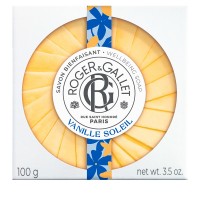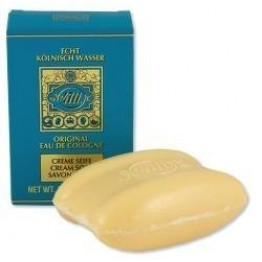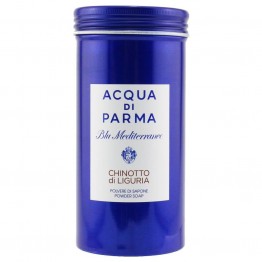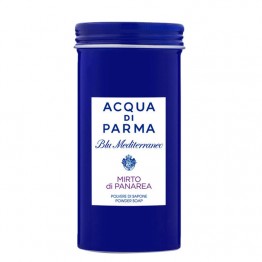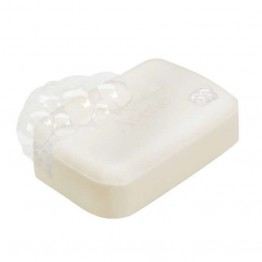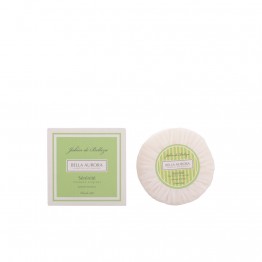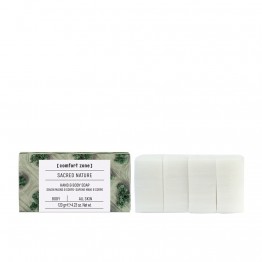Sabonetes
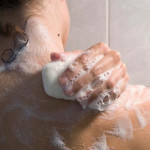
Como escolher o seu sabonete sólido?
Cada frasco de gel de banho é destinado a ser jogado fora quando terminar. A maioria desses frascos é de plástico. Inutil fazer um desenho, voce entendeu, se deseja evitar o lixo do banheiro, não deve usar gel de banho ou escolher a venda a granel. Hoje vamos falar sobre sabonetes sólidos, essas barras de sabão que encontramos em todo lugar nos mercados, hotéis, etc.
Quais são os critérios importantes para escolher um sabão sólido?
• Seu sabão é saponificado quando está frio?
Basicamente, fazer sabão é bastante simples. O sabão é uma mistura de matéria vegetal e soda cáustica (nada a ver com cristais de soda). Simplificando, matéria vegetal e soda cáustica unem-se para formar dois novos materiais: sabão e glicerina. E, como em qualquer boa equação, se houver mais matéria vegetal/gordurosa, o sabão ficará "surgras" e, se houver mais soda cáustica, o sabão será "cáustico". Esse processo é chamado de saponificação a frio.
Um sabão saponificado a frio (conhecido como SAF) é a garantia de que as matérias-primas utilizadas foram preservadas. Eles mantêm suas propriedades.
• O seu sabão está “surgras”?
Se você tem pele sensível ou pele esticada, vale a pena observar a % de excesso de gordura do seu sabão. Um sabão “surgras” é ideal quando está com excesso de gordura de 3% a 8%. Além disso, é bastante inútil (exceto o uso de óleos vegetais específicos).
Como explicado acima, um sabão gorduroso é um sabão composto por mais óleos e gorduras vegetais, em vez de soda cáustica. Portanto, é nutritivo para a pele.
• Quais óleos e gorduras são usados?
Seu sabão é feito de óleos e gorduras vegetais.
Muitos fabricantes produzem sabonetes feitos de gordura animal. A gordura animal é mais barata que a gordura vegetal. Mas, não faz nada para a pele.
Os óleos e gorduras vegetais usados nos sabões mantêm as mesmas propriedades de quando você os usa na pele.
Aqui está uma pequena recapitulação, de acordo com os óleos vegetais usados nos sabonetes oferecidos em nossa loja virtual:
• Óleo de coco: nutritivo e desinfetante
• Azeite: antioxidante (evita sinais de envelhecimento)
• Manteiga de karité: hidratante e reparadora
• Cera de abelha: evita a desidratação da pele, formando uma película protetora
• Óleo de colza: nutritivo
• Óleo de amêndoa doce: ultra nutritivo
• Óleo de Nigella: desinfetante e antibacteriano
• Use o sabão como esfoliante
Alguns fabricantes de sabão adicionam pós a seus sabonetes. Sabonetes SAF transformam-se em esfoliantes. O pó raspa suavemente a superfície da pele para remover impurezas e pele morta. A pele fica macia e flexível.
Existem muitas maneiras de fazer um sabão esfoliante. Observe que, em grandes retalhistas, muitos produtos são feitos de micro-esferas de plástico para proporcionar esse toque esfoliante. O que é completamente desnecessário, pois a natureza deu-nos tudo o que precisamos.
• grãos de café
• flores de lavanda
• pó de urtiga
• casca de citrinos em pó
Além de todos esses critérios, não esqueça de levar em consideração o perfume, mesmo que seja personalizado, o uso de sabão sólido deve permanecer um momento de prazer.
Novos 'Sabonetes' à venda
Korres Kumquat Butter Soap
Korres Kumquat Butter Soap - Sabonete Cremoso de Kumquat Descubra a sensação única de limpeza e..
7,95€
Korres Pure Cotton Butter Soap
Korres Pure Cotton Butter Soap: Experimente o luxo do cuidado diário com o Korres Pure Cotton Butter..
7,95€
Korres Sea Lavender Butter Soap
Korres Sea Lavender Butter Soap Descubra a pureza e a elegância do sabonete Korres Sea Lavender..
7,95€
4711 Original Eau De Cologne Sabonete
4711 Original Eau De Cologne Sabonete – A Essência Clássica da Pureza Descubra a experiência única ..
7,95€ 11,00€
-28%
A-Derma Dermopan
A-Derma Dermopan - Sabonete Cremoso para Pele Sensível Descubra o A-Derma Dermopan, o sabonete ..
7,95€ 10,40€
-24%
A-Derma Ultra-Rich Cleansing Bar
A-Derma Ultra-Rich Cleansing Bar Descubra o A-Derma Ultra-Rich Cleansing Bar, o sabonete ideal para..
7,95€
Acqua di Parma Blu Mediterraneo Chinotto di Liguria Sabão em Pó
Acqua di Parma Blu Mediterraneo Chinotto di Liguria Sabão em Pó Descubra a essência revigorante da L..
23,95€ 38,00€
-37%
Acqua di Parma Blu Mediterraneo Mirto di Panarea Powder Soap
Acqua di Parma Blu Mediterraneo Mirto di Panarea Powder Soap Descubra a essência revitalizante do A..
23,95€ 38,00€
-37%
Avène Cold Rich Cleansing Soap Bar
Avène Cold Rich Cleansing Soap Bar: Cuidado Suave e Eficaz para a Sua Pele Descubra o Avène Cold Ri..
5,95€ 8,00€
-26%
Babor Natural Cleansing Bar
Babor Natural Cleansing Bar: Limpeza Natural para Sua Pele Descubra a Babor Natural Cleansing Bar..
20,95€
Bella Aurora Serénité Sabonete de Beleza
O Sabão de Beleza Serénité limpa em profundidade a pele respeitando o manto hidrolipídico. Prepara a..
3,95€
Comfort Zone Sacred Nature Hand & Body Soap
Comfort Zone Sacred Nature Hand & Body Soap Descubra a pureza e a elegância do Comfort Zone Sacred N..
31,95€
Creed Aventus for Her Soap
Creed Aventus for Her Soap Descubra a elegância e a sofisticação do Creed Aventus for Her Soap, um s..
67,95€
Dr. Organic Aloe Vera Soap
Sabonete Dr. Organic Aloe Vera Descubra a pureza e os benefícios naturais do Sabonete Dr. Organ..
6,95€
Dr. Organic Manuka Honey Soap
Dr. Organic Manuka Honey Soap - Sabonete Natural com Mel de Manuka Descubra o luxo natural com Dr. O..
6,95€
Dr. Organic Tea Tree Soap
Dr. Organic Tea Tree Soap: Sabonete Natural e Refrescante Descubra a pureza e frescura do Dr. Organ..
6,95€

